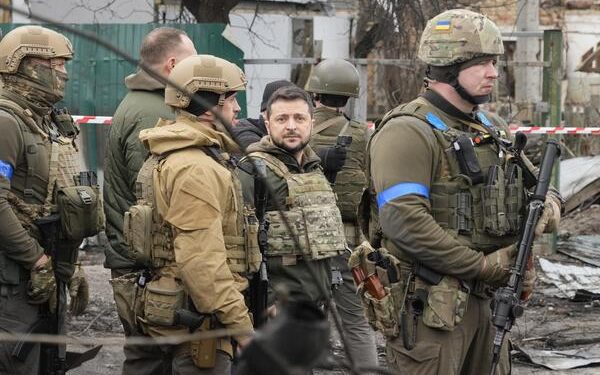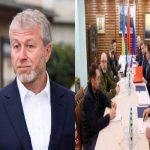Russians according to a report by the United State have suffered 100,000 casualties, including 20,000 killed, since a war of attrition intensified in Ukraine’s Donetsk region in December, according to an estimate by the White House, as Kyiv readies for a new counteroffensive against Moscow’s forces.
White House National Security Council spokesman John Kirby on Monday said the figure was based on newly declassified United States intelligence. He did not detail how the intelligence community arrived at the number.
He added that about half of those killed were soldiers recruited by the private Wagner Group of mercenaries, which draws many of its recruits from prison populations in Russia.
The fiercest battles in the eastern province have been around the city of Bakhmut, where Wagner and other forces are fighting Ukrainian forces house-to-house to try to gain control of the last remaining road west that is still in Ukrainian hands, which makes it critical for supplies and fresh troops.
“The bottom line is that Russia’s attempted offensive has backfired after months of fighting and extraordinary losses,” Kirby said.
He added that Russia had been “unable to seize any strategically significant territory” despite its military efforts.
“Russia has exhausted its military stockpiles and its armed forces,” Kirby said.
The spokesperson said the White House was not giving estimates of Ukrainian casualties because “they are the victims here. Russia is the aggressor.”
The head of Ukrainian ground forces, Oleksandr Syrskyi, said that Russia continued to exert “maximum effort” to take Bakhmut but that it so far had failed.
“In some parts of the city, the enemy was counterattacked by our units and left some positions,” he said.
With Ukraine preparing for a renewed counteroffensive to take back land occupied by Russia, Moscow in the early hours of Monday launched a second wave of nationwide missile strikes.
Ukrainian air defences destroyed 15 out of 18 missiles launched by Russia, but missile attacks on the eastern city of Pavlohrad killed two people and injured 40, President Volodymyr Zelenskyy said on Monday.
“The terrorists’ missiles took the lives of two people, very young men,” Zelenskyy said in his nightly video address. “Forty other people – women, children, men, were treated for wounds and injuries.”
Zelenskyy also said a 14-year-old boy was killed close to his school when it was hit by a bomb in the Chernihiv region, close to the Russian border.
Kyiv’s city officials said all missiles directed at the capital were destroyed in the second attack on the city in three days.
“According to [preliminary information], no casualties among the civilian population and no destruction of residential facilities or infrastructure have been recorded,” the city administration said.
The US ambassador to Kyiv, Bridget Brink, condemned Russia’s overnight missile attack and called it “barbaric”.
“Russia again launched missiles in the deep of night at Ukrainian cities where civilians, including children, should be able to sleep safely and peacefully,” Brink said on Twitter.
A Ukrainian military spokesperson said that Ukraine’s army was about to launch a counteroffensive and that the fire that destroyed a Russian fuel depot in Crimea on Sunday was “preparatory”.
In the Russian Bryansk region bordering Ukraine, an explosion derailed a freight train, the local governor said on Telegram.
Russian Railways, the country’s rail operator, said the incident occurred at 10:17am Moscow time (07:17 GMT).
“An unidentified explosive device went off at the 136-kilometre mark on the Bryansk-Unecha railway line, derailing a freight train,” Bryansk Governor Alexander Bogomaz said in a post on his Telegram channel.
Russian authorities say the region has seen multiple attacks by alleged pro-Ukrainian sabotage groups, including the shelling of a village on Saturday, which killed four civilians.
Meanwhile, Pope Francis said the Vatican is involved in a secret peace mission to end the conflict between Russia and Ukraine.
“There is a mission in course now but it is not yet public. When it is public, I will reveal it,” the pope told reporters during a flight home after a three-day visit to Hungary.
“I think that peace is always made by opening channels. You can never achieve peace through closure … This is not easy.”
The pope added that he had spoken about the situation in Ukraine with Hungarian Prime Minister Viktor Orban and Metropolitan Hilarion, a bishop who represents the Russian Orthodox Church in Budapest.














